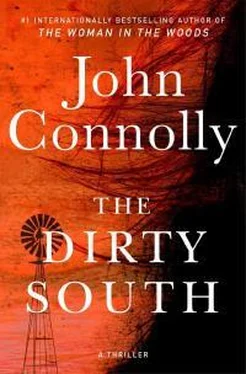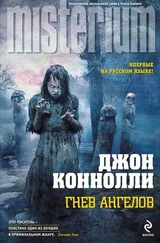This neglect didn’t affect the Karagol much either way. Nobody dumped in it, because the surrounding land to the east and south was marshy, and transporting anything heavy across it wasn’t worth the effort or risk; and the forest on its western and northern sides was inaccessible by road, in addition to consisting of protected rare pine, and so was preserved by law. Much of the Karagol stood on what everyone agreed was probably county land, known locally as the Karagol Holding, even if the county wasn’t rushing to claim it, and it wasn’t too clear what the county might have done with this territory had it decided to exercise its right of ownership to begin with.
So the Karagol was left alone.
Well alone.
If the lake was named Karagol, and the stream also, then one might have expected the town to be similarly denominated. This had actually been the case until the 1880s, when a meeting of local worthies concluded with a decision to alter the town’s name to Cargill, on the grounds that it was easier to pronounce and spell while retaining some connection to the original nomenclature, which was certainly true, and was the way most people pronounced Karagol anyway. It was also believed that a settlement named Cargill might attract more residents and businesses than one called Karagol, which turned out to be mildly delusional. A century-and-change later, Cargill still didn’t amount to a great deal of anything: a couple of pleasant buildings from the twenties and thirties, a whole bunch of average ones from the decades after, and a few thousand souls, including the coloreds, because they were God’s children too.
Cargill sat at the heart of Burdon County, the smallest and least prepossessing county in the state of Arkansas. The next smallest, neighboring Calhoun, had a population ten percent larger, of which half could barely rustle up two nickels to rub together. In Burdon, by contrast, nobody rubbed two nickels together, not unless he had a friend, and particularly one he could trust not to steal his nickel. The county had known poverty and hard times, but little else.
Timber had been Cargill’s wealth, relatively speaking, until the last big mill closed in the 1980s. Since then, the town appeared to have been inching its way toward oblivion, with little prospect of rescue. Folks prayed for the coming of the Savior, mostly to put them out of their misery, until – lo! – their better prayers were answered. A savior appeared, and he even resembled the guy on the church walls by virtue of being a white male who smiled a lot. William Jefferson Clinton, the son of a traveling salesman out of Hope, Arkansas, became the forty-second president of the United States, which meant that some federal manna was bound to come the Bear State’s way. And while Burdon County might have been right at the bottom of Bubba’s list, at least it was on the list.
Now all folks had to do was wait.
Because, miracle of miracles, Bubba had come through for them.
3
The Cargill Police Department wasn’t much to look at from the outside, which meant it had the good grace not to stand out from the rest of town. It shared offices and facilities with the fire department, and a parking lot with Ferdy’s Dunk-N-Go, a popular doughnut store, diner, and appliance repair center. The department numbered a chief, four full-time patrol officers, and a handful of part-timers, but was still understaffed. It had lost two full-time officers during the past month alone, both to better paying jobs elsewhere – which wouldn’t have been hard to find – and neither of them in law enforcement. It meant that the Cargill PD was no longer properly functioning on a full-time basis. The state police had temporarily assumed some of the emergency burden when the station house was closed, backed up by a rotation system whereby one full-time officer agreed to be on call during the night, but it was far from satisfactory for all concerned.
On the other hand, the remaining officers were at least as good as Cargill deserved, and some far better, in large part because Chief Evander Griffin had recruited most of them himself, once he’d managed to get rid of some of the dead wood during his first year in the job. He had fired one officer, persuaded another to accept a retirement bonus of $2,000 to go live with his daughter in Tacoma, and an automobile accident had saved him the trouble of dealing with a third. Fortuitously, Kel Knight, the only man left standing after that initial cull, was the sole officer Griffin would have chosen to retain anyway. He had immediately offered Knight a sergeant’s stripes – well, after they’d buried what was left of the previous holder of those three stripes, the automobile accident being a bad one involving a tree, a fire, and a combination of accelerants, namely gasoline and all the alcohol in the victim’s system.
But rebuilding and expanding the department after years of neglect was a struggle. Griffin had only recently managed to secure funding to replace what had passed for their best patrol car – a used Crown Vic without air-conditioning or heating, and troubled by a seat stuck in a semirecumbent position – with a means of transport that permitted a driver to sit up straight and not suffer dehydration in summer or risk hypothermia in winter. He’d raised salaries to the maximum the town could afford, and used his own money to buy some vests that might potentially stop a bullet, or at least slow its progress. The mayor and council had been as supportive as they could, given their limited resources, because the alternatives were to amalgamate with one of the neighboring townships, all of which were worse off than Cargill; rely solely on the state police, who already had their work cut out; or strike a deal with the Burdon County Sheriff’s Office, and Griffin would rather have resigned than take that last step. So, in order to retain its chief and provide a police service that was fit for purpose, Cargill had ponied up.
But it was also in the town’s interests to invest in law enforcement, because decisions were being made in Little Rock and Washington, D.C., that might yet prove to be its salvation. Sometimes, one had to spend money to make money …
On this particular evening in downtown Cargill, Griffin was finishing up some paperwork, and contemplating the possibility of getting home in time to consume a leisurely dinner, followed by an hour in front of the TV with his wife. He caught sight of his reflection in the window as he glanced into the night and concluded – not for the first time – that his wife ought to have found herself a younger, better-looking mate. He was grateful that she had not, and was so far resisting any inclination to trade him in for a superior model, but Griffin was a modest man with, he felt, much about which to be modest. He was approaching fifty, and had recently been forced to purchase a new belt for his pants due to an insufficiency of holes in the previous cincture. He still retained much of his hair, which was a blessing, but the dark luster of youth was a distant memory. Napping had become habitual to him, and his feet often hurt. Wherever he looked, downhill beckoned.
Griffin had recently relocated his office from the back of the building to the front because the view was depressing him. Tornadoes had begun to shift east in recent years, meaning that Tornado Alley – previously the preserve of Texas, Oklahoma and Kansas, for the most part – now included regions of Arkansas, including Cargill. The first of the year’s twisters had struck a couple of weeks previously, leaving a trail of wrecked homes and ruined lives. In the days following, Griffin had discovered the remains of a mongrel dog stuck up a bald cypress. The dog was trapped in the topmost branches, and was entirely undamaged – apart from being dead, which, Griffin supposed, was about as damaged as a dog could get. The equipment wasn’t available to remove the dog, being required more urgently elsewhere, and so its body had remained in the tree for days. By an unfortunate quirk of fate, Griffin’s office window had provided a direct line of sight to the dead dog. Even when it was eventually retrieved, he could still see the tree and picture the animal, so he moved his office because it wasn’t as though he didn’t have enough to feel depressed about.
Читать дальше












